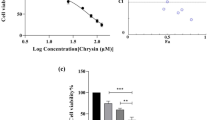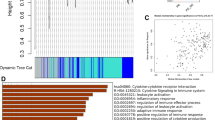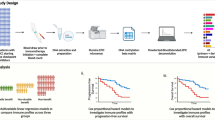Abstract
Cytoplasts and karyoplasts were obtained by ultracentrifugation of Hepatoma D23 cells on a Ficoll gradient containing cytochalasin B. Their nuclear and protein content and their metabolic activity were determined. Three i.p. injections of 2.3 x 10(7) cytoplasts were unable to protect syngeneic WAB/Not rats against an s.c. challenge of 10(4) D23 cells, whereas a similar amount of karyoplasts, or 3 injections of 10(6) irradiated D23 cells, were fully protective. Ability of cytoplasts to act as primary or secondary immunogen were also studied, and compared to that of 0.01% glutaraldehyde-treated cells, 43 degrees C heat-treated cells and 3M KCl-soluble extracts, these preparations also being of weak immunogenicity. Only heat-treated cells behaved as a primary immunogen, whereas none of the preparations provided a secondary stimulation. Moreover, when these preparations were fed in vitro to peritoneal-exudate cells before their injection into rats, cytoplasts and glutaraldehyde-treated cells showed no immunogenicity, whereas heat-treated cells induced full protection against tumour challenge. Therefore, in this tumour model, the in vivo persistence of immunogen and the presence of a nucleus are likely to be crucial in inducing transplantation resistance to tumour.
This is a preview of subscription content, access via your institution
Access options
Subscribe to this journal
Receive 24 print issues and online access
$259.00 per year
only $10.79 per issue
Buy this article
- Purchase on SpringerLink
- Instant access to the full article PDF.
USD 39.95
Prices may be subject to local taxes which are calculated during checkout
Similar content being viewed by others
Rights and permissions
About this article
Cite this article
Gerlier, D., Price, M. & Baldwin, R. Non-immunogenicity of enucleated rat hepatoma cells in syngeneic animals. Br J Cancer 44, 725–732 (1981). https://doi.org/10.1038/bjc.1981.259
Issue date:
DOI: https://doi.org/10.1038/bjc.1981.259



